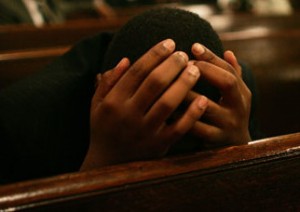Ever since Nate died in November of 2009, I’ve heard from blog readers who’ve also gone through the agony of losing their husbands. But the comments and emails haven’t been just about widowhood. I’ve heard from widowers and those who’ve experienced suffering in many categories other than through death.
In cyber-conversations people have described a variety of severe stresses that have caused depression, anguish, fear, isolation and physical decline, to name a few. The one universal is that a reason to suffer eventually comes to us all.
As my cyber-friends have shared their stories, it’s sometimes difficult to respond in helpful ways. None of us can know exactly what will reassure and soothe someone who is suffering. But I now know how it feels to be on the receiving end of sympathy from people who are trying to help.
When any of us purchase sympathy cards and think carefully about what to write inside, our intention is always to bring comfort to the recipient. None of us would want to cause a sad person to be sadder. And yet sometimes our words do that.
I remember in the days after Nate’s funeral that many cards contained wounding words: “God will bring good from this,” or “God wasn’t surprised by Nate’s cancer and is sovereign,” or “Now is the time to eat well and get plenty of rest.”
These things were all true, but none made sense at the time. Other cards said, “How about I come and visit you?” or “We should go out to eat,” or “Why don’t we plan a get-away?” Many cards included verses of Scripture.
I ignored them all.
The most meaningful words that came in the early weeks of widowhood were, “I have no words.” Her statement was proof she’d joined me in my suffering, and it was a comfort.
As time ticked by, the numbness slowly subsided, and written Scripture was what I craved. I began hoping it would be inside every card. When it was, I studied the passage carefully, sensing that God himself had chosen it just for me. Many had a powerful impact.
One lesson I’ve learned is that sympathy ought never to include a way to “fix” the problem. Grief is a process, not a puzzle to be solved or a hurdle to be jumped as quickly as possible. Although it sounds odd to say this, grief ought to be carefully cradled. A wounded heart can be broken if others move in too quickly with “you ought to…”
None of us fully understand the phenomenon of suffering, but one thing is sure. God makes himself available to a sufferer in ways a non-sufferer doesn’t experience. He knows exactly when to be silent, when to communicate, and when to simply sit with us and record our tears.
He’s been perfect sufficiency to every stage of my suffering and will be the same to anyone who cries out to him.
”How abundant are the good things that you have stored up for… those who take refuge in you, [Lord]. In the shelter of your presence you hide them.” (Psalm 31:19-20)

